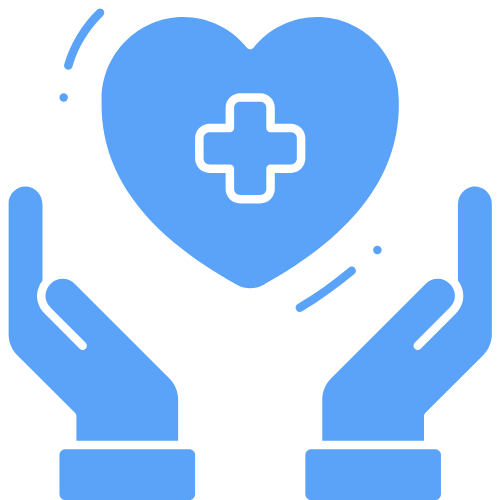Family therapy augments your individual wellness through a holistic mental health approach that integrates both personal and relational healing. You’ll experience evidence-based treatments customized to your unique needs, while developing stronger family connections and coping mechanisms. Through active participation in family-centered care, you’ll master communication tools, establish healthy boundaries, and build emotional intelligence. This transformative approach achieves remarkable outcomes, with over 97% of clients reporting significant improvement in their mental health odyssey.
The Power of Family-Centered Mental Health Care

Why has family-centered mental health care emerged as a transformative approach in therapeutic settings? When you integrate family perspectives into mental health treatment, you’re tapping into a powerful system of support that bolsters recovery outcomes. This approach reduces anxiety and emotional distress while strengthening coping mechanisms through family-to-family connections. Emotional intelligence and empathy naturally develop through consistent family therapy sessions. The endorsement by leading medical organizations has established family-centered care as a cornerstone of effective mental health treatment.
Through shared decision making, you’ll find that family-centered care builds trust between healthcare providers and families, leading to more effective treatment plans. The emphasis on cultural competence guarantees that diverse family needs are respected and addressed. Open and objective information sharing between providers and families creates a foundation for successful therapeutic interventions. You’ll see how this collaborative approach improves mental health outcomes for both patients and caregivers, particularly in cases involving chronic illness. By fostering a holistic understanding of family dynamics, you’re better equipped to address intergenerational mental health challenges while optimizing resource utilization.
Key Components of Therapeutic Success
When examining successful therapeutic outcomes in family therapy, several key components work together synergistically to create lasting positive change. You’ll find that effective therapist training and culturally responsive interventions form the foundation of transformative therapeutic experiences. Research shows that systemic changes can be achieved through various family therapy approaches. Your progress in family therapy depends heavily on the therapeutic alliance, which develops through your therapist’s warmth, nonjudgmental approach, and cultural sensitivity. Studies indicate that high satisfaction rates are consistently reported by over 97% of clients who complete family therapy. You’ll engage in communication-building exercises and perspective-taking activities while working within structured sessions that remain flexible to your family’s needs. As you participate actively and consistently, you’ll uncover how evidence-based models combine with holistic approaches like mindfulness and body-based modalities to address your unique challenges. Through this all-encompassing framework, you’ll develop stronger relationships and improved emotional regulation within your family system. The combination of family and individual therapy provides the most comprehensive path to recovery and mental well-being.
Measuring Progress and Treatment Outcomes

The systematic measurement of progress in family therapy combines quantitative assessments with qualitative feedback to create an all-encompassing picture of treatment effectiveness. You’ll encounter both standardized assessments and open dialogue as tools to track your family’s odyssey toward wellness. Regular treatment plan updates ensure therapeutic strategies remain responsive to your evolving family dynamics. Research shows that routine monitoring of client progress significantly enhances treatment outcomes. The psychoeducational approach combines behavioral assessments with educational elements to provide comprehensive progress tracking.
| Assessment Type | Purpose |
|---|---|
| UCLA PTSD Index | Tracks trauma symptoms |
| Progress Notes | Documents behavioral changes |
| EHR Systems | Streamlines data collection |
| Clinical Ratings | Identifies hidden issues |
| Goal Reviews | Adjusts treatment plans |
Your treatment outcomes will be measured through multiple lenses, including self-reported improvements, clinician observations, and automated tracking systems. You’ll participate in quarterly reviews to guarantee your family’s goals remain relevant and achievable. This inclusive approach helps your therapist make data-driven decisions while maintaining the personal touch essential for meaningful therapeutic relationships.
Building Stronger Family Connections Through Therapy
Beyond measuring progress, strengthening family bonds requires intentional therapeutic strategies that address both individual needs and collective dynamics. You’ll uncover that achieving relational harmony often stems from mastering essential communication tools like “I-statements” and active listening exercises, which build emotional intelligence among family members. Family mental health concerns emerge from shared system dynamics rather than isolated individual issues. These therapeutic sessions incorporate psychoeducational tools to help families develop effective coping mechanisms.
Through structured therapy sessions, you’ll learn to set healthy boundaries while validating each other’s feelings, creating a foundation of mutual respect and understanding. Your therapist will help you identify and transform negative patterns, exploring intergenerational influences that may impact your family’s dynamics. Families who engage in therapy early on tend to experience greater success in resolving conflicts and improving relationships. By incorporating mindfulness practices and conflict-resolution techniques, you’ll develop skills to navigate disagreements constructively. This all-encompassing approach ensures that both individual wellness and collective growth flourish within your family system.
Personalized Approaches for Diverse Patient Needs

Successful family therapy hinges on developing personalized approaches that honor each family’s unique composition, cultural background, and therapeutic needs. You’ll find that therapist flexibility and cultural sensitivity are essential elements in creating a safe, nurturing environment where every family member can engage meaningfully in the therapeutic process.
Research shows that customized interventions yield considerably better outcomes, with personalized treatment goals showing larger effect sizes (d = 0.86) compared to generic approaches. Goal Attainment Scaling provides a systematic way to track individual progress throughout treatment. With statistics showing that 40% of U.S. families will seek therapy during their lifetime, personalized treatment approaches have become increasingly vital. When you participate in therapy, you’ll experience differentiated intervention strategies that address individual roles while maintaining group cohesion. Your therapist will adapt session formats and therapeutic techniques to accommodate your family’s specific circumstances, whether through in-person meetings or virtual sessions. This individualized approach confirms that each family member’s voice is heard while working in the direction of collective healing. Therapists actively work to include diverse family structures, including single-parent, blended, and extended families, ensuring that all family configurations receive appropriate therapeutic support.
Frequently Asked Questions
How Long Does It Take to See Noticeable Improvements in Family Dynamics?
You’ll typically notice initial improvements in family dynamics within 6-12 sessions, though meaningful change requires ongoing commitment from all members. While some families experience early breakthroughs, lasting transformation emerges through gradual progress over several months. Your active participation in homework assignments and regular attendance substantially accelerates positive changes. Keep in mind that each family’s experience is unique, and improvements often continue well beyond the formal therapy period.
What Happens if Some Family Members Refuse to Participate in Therapy?
When you’re facing resistance to participation from family members, it can greatly impact therapy’s effectiveness. While you can’t force participation, you’ll need to adapt your approach. Your therapist may suggest individual sessions with willing members while keeping the door open for others. Family participation requirements vary, but partial engagement often leads to incomplete healing. You’ll see better outcomes when everyone’s involved, as family dynamics affect all members systemically.
Are Insurance Companies Likely to Cover Holistic Family Therapy Sessions?
Your insurance coverage for holistic family therapy will vary substantially. Traditional family therapy typically has better provider reimbursement rates when addressing diagnosed mental health conditions. You’ll likely face higher out-of-pocket costs for holistic approaches, as many insurers consider them alternative treatments. To optimize coverage, work with in-network providers who combine evidence-based practices with holistic methods, and always verify your specific plan’s benefits before starting treatment.
Can Family Therapy Be Conducted Effectively Through Virtual or Online Platforms?
Yes, you can receive effective family therapy through virtual platforms. Research shows that online sessions achieve comparable outcomes to in-person therapy while offering improved scheduling logistics and convenience. You’ll need a secure, private space and reliable internet connection to maintain online confidentiality. Your therapist will adapt their techniques for virtual engagement, ensuring all family members can participate meaningfully. Virtual platforms support the same evidence-based interventions as traditional settings, including CBT and emotion-focused approaches.
How Do Therapists Handle Conflicts Between Family Members During Sessions?
Therapists manage family conflicts during sessions by creating a safe space for open communication while maintaining firm boundaries. They’ll use active listening techniques to validate each member’s perspective and help address unresolved issues constructively. You’ll notice them redirecting hostile interactions, encouraging “I” statements, and teaching conflict resolution skills. They also establish ground rules at the start and may separate family members temporarily if tensions escalate too highly.
















